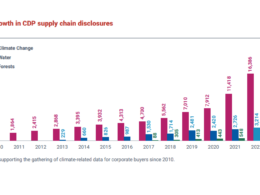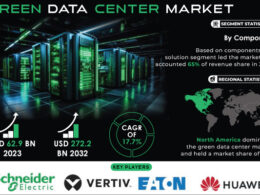“Sustainability is a fundamental core value that guides our every action.” These powerful words from Mr. Yue Kwai Wa Ken, CEO of Roma (meta) Group Limited, reflect a deep-rooted commitment to environmental and social responsibility that goes beyond compliance. As the proud winner of the Gold Award in Asia’s Best Sustainability Report (SME) category at the Asia Sustainability Reporting Awards (ASRA) 2024, Roma Group has set a benchmark in transparent, impactful sustainability communication.
As the official media partner for ASRA 2024, ESG Post sat down with Mr. Yue to delve into the company’s sustainability journey, the challenges and rewards of ESG reporting, and his insights on how businesses—especially SMEs—can embrace sustainability not just as a requirement, but as a driving force for long-term success.
Why does your company publish a sustainability report?
For ROMA, sustainability is a fundamental core value that guides our every action. We publish a sustainability report annually to provide a comprehensive overview of our efforts and achievements across key areas such as environmental protection, employee well-being, responsible operating practices, and community investment. This report serves as a transparent window into our commitment, allowing both internal and external stakeholders to understand and monitor our progress. Importantly, the report was prepared beyond compliance standards, emphasizing our dedication to integrating sustainability into the core of our mission at ROMA.
Which part of sustainability reporting did you find to be the most challenging?
The journey of preparing our sustainability report since our first publication in 2016 has been both enjoyable and rewarding. It has provided us with a valuable opportunity to recognize the importance of sustainability in our business operations. Throughout the process, we have gained a deeper understanding of our sustainability performance and the impact we can make. We are proud to share our progress and look forward to continuing our journey toward greater sustainability.
One of the challenges was data collection, which required us to gather information from various departments. Additionally, we faced the challenge of maintaining consistency between the Chinese and English versions of our materials (requirements for Hong Kong listed companies). This involved not only translating the content but also ensuring that the terminology and messaging aligned across both languages.
How has your company benefitted from disclosing sustainability performance?
Disclosing sustainability performance has enhanced our company’s reputation and built trust with stakeholders. It has positioned us as a responsible corporate citizen, as evidenced by awards like the Asia’s Best Sustainability Report (SME) Gold Award. Transparency has also improved our risk management by helping us identify and address potential ESG issues early. Furthermore, it has attracted like-minded business partners and clients who value sustainability, creating new business opportunities. Internally, disclosing our sustainability performance has created a culture of continuous improvement and boosted employee engagement, which in turn has helped us retain valuable talent within the company.
What steps do you take to ensure that your sustainability report is reliable and credible?
We have taken the following steps to ensure reliability and credibility:
- Adherence to Standards: We follow international reporting standards and frameworks, including the HKEX ESG Reporting Guide, GRI Standards, TCFD, IFRS (including ISSB’s S1 and S2 standards), and UNSDGs.
- Rigorous Internal Processes: Our internal information and data collection procedures include thorough data verification and cross-checking across departments.
- Team Training: We provide regular training for our team to keep them updated on best practices in sustainability reporting.
- External Assurance: We engaged a third party to conduct an independent assurance for our greenhouse gas emissions to further enhance the accuracy and reliability of the data.
How do you think sustainability reporting will evolve in the next five years?
In considering the future of sustainability reporting, we anticipate the following trends over the next five years:
- Emphasise forward-looking disclosures, particularly regarding climate-related risks and opportunities, as companies align with global goals such as net-zero emissions.
- Leverage technology to enhance data accuracy and transparency through digital tools and platforms.
- Address evolving stakeholder expectations by providing more detailed and accessible reporting, focusing on impact and outcomes rather than merely presenting metrics.
- Establish SMART KPIs to track progress, ensuring that targets are Specific, Measurable, Achievable, Relevant, and Time-bound, thereby improving accountability in sustainability efforts.
- Adapt swiftly to remain competitive and comply with changing regulatory requirements.
What advice would you offer to other companies striving to enhance their sustainability reporting practices and earn recognition in initiatives like the Asia Sustainability Reporting Awards?
We recommend that companies begin by setting ambitious, science-based targets that are aligned with global standards. These targets should be both measurable and achievable, to enhance sustainability reporting. In addition, they should actively engage stakeholders through various channels to address their concerns and expectations, fostering a collaborative approach. Finally, they must stay updated on regulatory changes and best practices by benchmarking against peers and best-in-class companies.





















